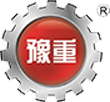Henan Zhonggong Group Helped CEEC Project Creating a Number of World Records
No. 6, Crane Industrial Park, Changyuan Town, Xinxiang City, Henan Province, China

Henan Zhonggong Group
Henan Tosta Machinery Co., Ltd.
Gantry Crane
Overhead Crane
Light Crane
Port & Container Crane
Launching Gantry Crane
Hoist & Crane Trolley
Crane Components
Electric Winch Overview
EOT Crane
The hoist crane has been widely applied in manufacturing and engineering construction workplaces – manufacturing equipment –, which inevitably leads to unsafe practices and carelessness. A lot of safety incidents related to lifting equipment have caused lots of losses.
As everyone knows, new methods of learning and training about lifting equipment and the enhancement of workplace safety awareness are conducive to reducing safety accidents. The application of new technologies such as protection systems of lifting equipment makes the actual operation of lifting equipment safer and more accurate. In this article, the benefits and necessity of protection systems of lifting equipment in the workplace will be explored.
Protection systems of lifting equipment, such as monitoring system software of lifting equipment, allow operators to better grasp the surrounding environment.
Enclosed cabs generally obstruct the operator's view and are more likely to become a problem in more complex sites where there are more distractions.
Even in an open cab, there are still blind spots around the gantry crane hoist equipment. The protection systems of lifting equipment can be mounted anywhere to improve convenience for operators. They are connected to the LCD display in the engine compartment, which facilitates the inquiry.
All lifting equipment operators should be proficient in hand gestures so that they can better communicate with ground crews. However, it is very likely that the message is ignored or misunderstood, which may cause inconvenience.
Now that communication equipment has made great progress. With Internet of Things technology, it is easier and faster to communicate with the floor. For engineering construction work, operators must also generally master durable machinery and equipment that can withstand shock, temperature and water.
Load Torque Indicator (LMI) and Short Circuit Capacity Indicator (RCI) are key workpieces for the operation of lifting equipment to avoid load safety accidents.
They provide a detailed brief description of the elevator, including capacity, radius volume, boom angle, boom length and two-gear safety. Several sensors are assembled on the hoisting equipment, which can ensure the accurate reporting of the basic hoisting data of the hoist crane.
They use small and medium mobile lifting equipment and large and medium truss structure lifting equipment.
The protection system of lifting equipment is particularly important for enhancing the overall safety factor of the project. They help protect your workforce from unplanned injuries and reduce costs associated with unplanned shutdowns.
For example, the anemometer, the index value of the hoisting function of hoist crane of the lifting equipment LMI system software, and the load evaluation index system of lifting equipment, which can improve the safety factor of the project.